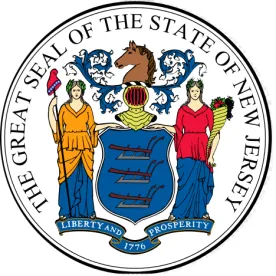On June 16, 2021, New Jersey’s highest court reminded employers that a supervisor’s isolated but highly offensive comments may – on their own – be enough to sustain a hostile environment claim under NJ’s Law Against Discrimination.
In Armando Rios, Jr. v. Meda Pharmaceutical, Inc. (A-23-20) (084746), Mr. Rios – a Hispanic employee – alleged that his supervisor directed two racially motivated slurs against him. One comment occurred when Rios expressed interest in purchasing a new home. According to Rios, his supervisor quipped, “it must be hard for a Sp-- to have to get FHA loans.” One month later, Rios claims his supervisor commented that an actress who was auditioning for a company commercial for which they were casting would be an acceptable choice “if she didn’t look too Sp—ky.” The supervisor denied making either comment, and there were no witnesses to either comment.
Analyzing the purported comments “from the perspective of a reasonable Hispanic employee in [plaintiff’s] position,” and upon a review of all circumstances, as settled law requires, the Court determined “a rational factfinder could have reasonably found . . . that the alleged slurs directed at [Rios] were sufficiently severe to create a hostile work environment.” Three key considerations contributed to the Court’s holding: (i) the two alleged comments were “highly offensive and demeaning slurs,” (ii) the supervisor’s elevated position “compounded the severity of the alleged remarks,” and (iii) Rios allegedly reported his supervisor’s comments to the company’s Human Resources Department, but the HR representative was “dismissive.”
Prior to this decision, the Supreme Court had held that a single, highly offensive racial slur may be sufficient to establish a hostile work environment, particularly where the comment was made by a high-level supervisor in front of other high-level supervisors and co-workers. See e.g., Taylor v. Metzger, 152 N.J. 490 (1998). Here, by way of contrast, Rios’s supervisor was not a high-level executive, and there was no evidence in the record corroborating the supervisor’s alleged hostile remarks. However, the Court found that its earlier decisions did not purport to articulate any set of minimal facts necessary to allege sufficiently a hostile work environment.
This holding reminds employers that racial epithets of any kind cannot be tolerated in the workplace. More broadly, the opinion reinforces the need for thorough and effective anti-discrimination and anti-harassment policies and training. Such training is not only important for managers and supervisors, but for all employees, regardless of level. Supervisors and managers play a critical role as the company’s “eyes and ears” in addressing and preventing workplace harassment, but any employee who exercises supervisory authority over another may also be deemed a supervisor under the Supreme Court’s analytical framework for hostile work environment claims. Human resources professionals must remain vigilant and be prepared to investigate and respond to employee complaints promptly and appropriately in order to reduce employers’ exposure to such costly and time-consuming litigation.




 />i
/>i

